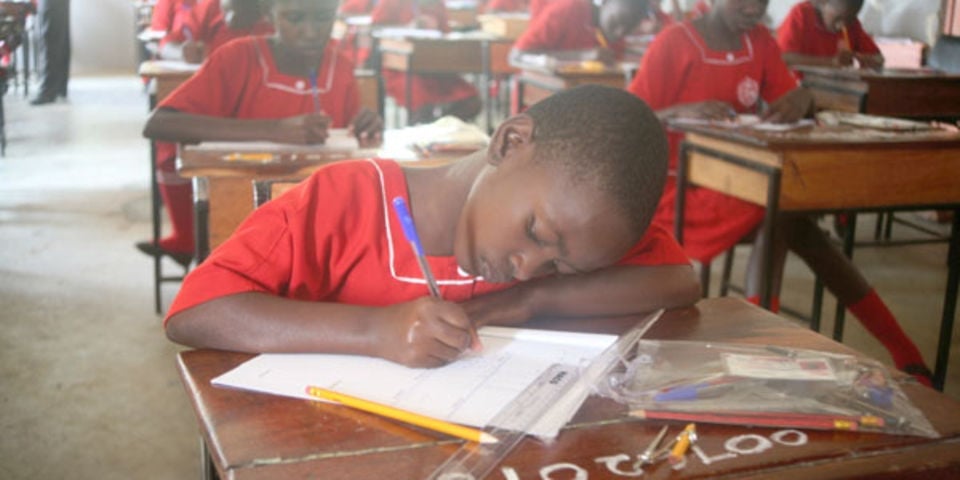Prime
Top Education official roots for regional PLE

Primary Seven candidates of Budo Junior School write their Mathematics exam on November 5, 2018. PHOTO/FILE
What you need to know:
- The proposed changes to the 1992 Education White Paper include reviewing the curriculum, assessment and teaching processes as well as regulation of private schools.
The assistant commissioner-in-charge of private schools and institutions of higher learning in the Ministry of Education and Sports, Mr George Mutekanga, has asked the government to consider conducting Primary Leaving Examinations (PLE) at regional level.
According to Mr Mutekanga, each region should have its examination body to set its own exams for the learners there.
“I propose we have a regional examination at primary and national ones at Uganda Certificate of Education as opposed to abolishing it,” Mr Mutekanga said yesterday.
“This is because when one is going to interviews at the work place, they are not asked to produce PLE results, so these can be done regionally,” he added.
Dr Mutekanga was yesterday speaking at the launch of the formative study report on utilisation of learning assessments in Uganda at Makerere University.
The call comes at a time when a section of the public has recommended for the abolition of PLE to the Education Policy Review Commission (EPRC) on grounds that it no longer adds values to graduates. EPRC is currently in the last stages of collecting views from different stakeholders with a view to overhauling the current education system whose polices were formulated in 1992.
At the Makerere University event yesterday, the principal of the College of Education and External Studies, Prof Anthony Muwagga Mugagga, said before the government abolishes any examinations, they should have alternatives that will see learners transit from primary to secondary.
The Global E-school and Communities (GESCI) in collaboration with the Makerere University College of Education and External Studies conducted a study between April to July 2022 on adapting assessment into policy and learning (ADAPT).
According to the findings, while many stakeholders in assessment of learners appreciate the need for the 21st century skills, their attention and focus was found on the end of cycle examinations.
“Some of them perceived the assessment of life skills and values as very difficult and others expressed negative attitudes about the relevancy of assessing life skills and values,” Dr John Mary Vianney Mitana, one of the researchers, said.
The findings also revealed that there is minimal coordination and collaboration among the assessment bodies in the country such as Uganda National Examination Board (Uneb), the Directorate of Industrial Training (DIT) and Uganda Business and Technical Examinations Board (Ubteb).
The education experts asked the government and institutions to ensure that they train teachers how to assess competence based skills.




